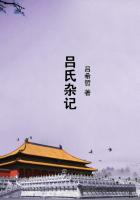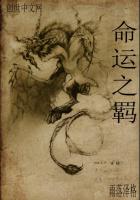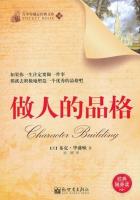"Precisely. That was why I came straight to you, bringing an open mind to bear on things. I'm anxious to know what popular feeling in India is really like y'know, now that it has wakened into political life. The National Congress, in spite of Dawlishe, must have caused great excitement among the masses?"
"On the contrary, nothing could be more tranquil than the state of popular feeling; and as to excitement, the people would as soon be excited over the 'Rule of Three' as over the Congress."
"Excuse me, Orde, but do you think you are a fair judge? Isn't the official Anglo-Indian naturally jealous of any external influences that might move the masses, and so much opposed to liberal ideas, truly liberal ideas, that he can scarcely be expected to regard a popular movement with fairness?"
"What did Dawlishe say about Tommy Rot? Think a moment, old man. You and I were brought up together; taught by the same tutors, read the same books, lived the same life, and new languages, and work among new races; while you, more fortunate, remain at home. Why should I change my mind our mind-because I change my sky? Why should I and the few hundred Englishmen in my service become unreasonable, prejudiced fossils, while you and your newer friends alone remain bright and open-minded?
You surely don't fancy civilians are members of a Primrose League?"
"Of course not, but the mere position of an English official gives him a point of view which cannot but bias his mind on this question." Pagett moved his knee up and down a little uneasily as he spoke.
"That sounds plausible enough, but, like more plausible notions on Indian matters, I believe it's a mistake. You'll find when you come to consult the unofficial Briton that our fault, as a class--I speak of the civilian now-is rather to magnify the progress that has been made toward liberal institutions. It is of English origin, such as it is, and the stress of our work since the Mutiny--only thirty years ago--has been in that direction. No, I think you will get no fairer or more dispassionate view of the Congress business than such men as I can give you. But I may as well say at once that those who know most of India, from the inside, are inclined to wonder at the noise our scarcely begun experiment makes in England."
"But surely the gathering together of Congress delegates is of itself a new thing."
"There's nothing new under the sun When Europe was a jungle half Asia flocked to the canonical conferences of Buddhism; and for centuries the people have gathered at Pun, Hurdwar, Trimbak, and Benares in immense numbers. A great meeting, what you call a mass meeting, is really one of the oldest and most popular of Indian institutions In the case of the Congress meetings, the only notable fact is that the priests of the altar are British, not Buddhist, Jam or Brahmanical, and that the whole thing is a British contrivance kept alive by the efforts of Messrs. Hume, Eardley, Norton, and Digby."
"You mean to say, then, it s not a spontaneous movement?"
"What movement was ever spontaneous in any true sense of the word? This seems to be more factitious than usual. You seem to know a great deal about it; try it by the touchstone of subscriptions, a coarse but fairly trustworthy criterion, and there is scarcely the color of money in it. The delegates write from England that they are out of pocket for working expenses, railway fares, and stationery--the mere pasteboard and scaffolding of their show. It is, in fact, collapsing from mere financial inanition."
"But you cannot deny that the people of India, who are, perhaps, too poor to subscribe, are mentally and morally moved by the agitation," Pagett insisted.
"That is precisely what I do deny. The native side of the movement is the work of a limited class, a microscopic minority, as Lord Dufferin described it, when compared with the people proper, but still a very interesting class, seeing that it is of our own creation. It is composed almost entirely of those of the literary or clerkly castes who have received an English education."
"Surely that s a very important class. Its members must be the ordained leaders of popular thought."
"Anywhere else they might he leaders, but they have no social weight in this topsy-turvy land, and though they have been employed in clerical work for generations they have no prac. tical knowledge of affairs. A ship's clerk is a useful person, but he it scarcely the captain; and an orderly-room writer, however smart he may be, is not the colonel. You see, the writer class in India has never till now aspired to anything like command. It wasn t allowed to. The Indian gentleman, for thousands of years past, has resembled Victor Hugo's noble:
'Un vrai sire Chatelain Laisse ecrire Le vilain.
Sa main digne Quand il signe Egratigne Le velin.
And the little egralignures he most likes to make have been scored pretty deeply by the sword."
"But this is childish and medheval nonsense!"
"Precisely; and from your, or rather our, point of view the pen is mightier than the sword. In this country it's otherwise. The fault lies in our Indian balances, not yet adjusted to civilized weights and measures."
"Well, at all events, this literary class represent the natural aspirations and wishes of the people at large, though it may not exactly lead them, and, in spite of all you say, Orde, I defy you to find a really sound English Radical who would not sympathize with those aspirations."
Pagett spoke with some warmth, and he had scarcely ceased when a well appointed dog-cart turned into the compound gates, and Orde rose saying:
"Here is Edwards, the Master of the Lodge I neglect so diligently, come to talk about accounts, I suppose."
As the vehicle drove up under the porch Pagett also rose, saying with the trained effusion born of much practice:
"But this is also my friend, my old and valued friend Edwards. I'm delighted to see you. I knew you were in India, but not exactly where."
"Then it isn't accounts, Mr. Edwards," said Orde, cheerily.















